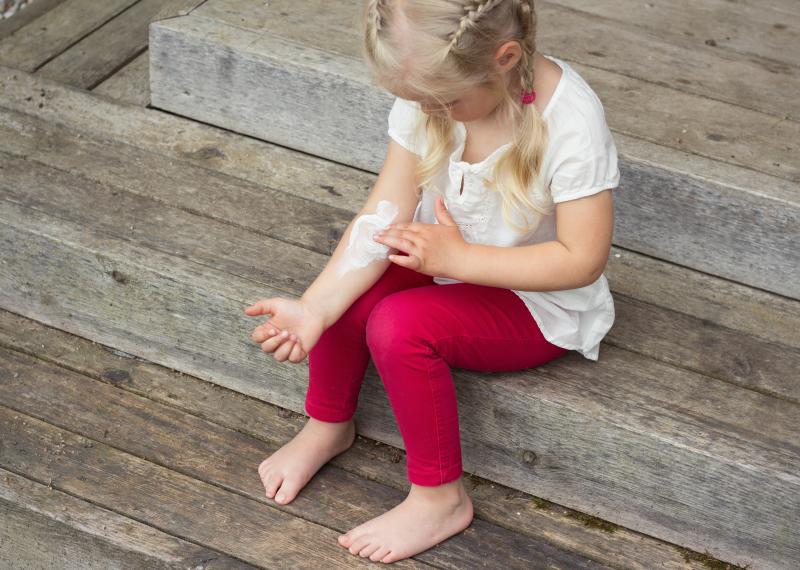
Off-label dupilumab shows potential in the treatment of atopic dermatitis (AD) in children, although appropriate dosing recommendations have yet to be established, suggests a new study.
Researchers performed a multicentre retrospective review including 124 paediatric AD patients (mean age at initiation, 13.0±3.9 years; 32.3 percent female) with moderate-to-severe disease. Qualitative interpretation for symptom improvement, as judged by the physician and documented in the medical record, was translated into a 5-point score and set as the primary outcome.
After a 9-week delay, 89.5 percent (n=111) of the participants were able to initiate dupilumab treatment. The remaining patients (n=13) failed to receive treatment based on their payer denial to cover the cost. The mean loading dose was 8.7±2.2 mg/kg.
At baseline, majority (70.5 percent) of the patients had severe disease, while 29.5 percent had moderate AD. Over a mean follow-up duration of 9 months, the children received an average of 16.4 doses. At the end of the study, majority (64.3 percent) of the patients showed improvements in investigator global assessment scores of at least 2 points.
In comparison, 22.1 percent of children showed a 1-point improvement while 12.6 percent experienced no change in symptoms. Most of the participants believed their eczema had eased and wanted to continue taking dupilumab.
Adverse events occurred rarely. The most common of which was worsening conjunctivitis, detected in 10 patients. There were two cases of viral upper respiratory infection, three injection site reactions and six facial eruptions. One patient discontinued treatment due to lack of response at 6 months.